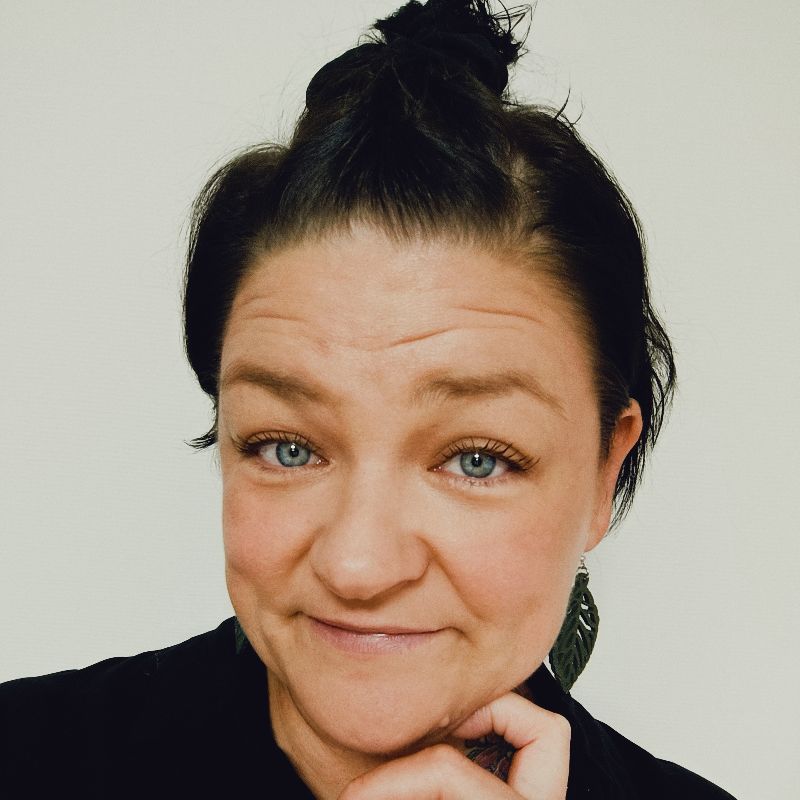Child carer
"The highlight of my day is when children hop onto my lap in the morning, hug me during the day, and call me by my name when we are outside, even if I am not a caregiver in their particular group. Then I feel that I have succeeded in my work."

- Tanja Kujansuu
- Child carer in the city of Pori.
- Completed a vocational qualification in social and health care at Sataedu vocational college.
- Seven years of work experience in the field.
Briefly explain what you do for a living.
I am employed as a child carer for a group of toddlers under the age of three at a municipal ECEC centre. I am responsible for the care and guidance of children and the planning of group activities. I also help children with their everyday activities, such as meals and dressing, and take care of their hygiene. I also prepare the ECEC plans for children who have been assigned to my care.
How have you ended up in the profession of your choice?
I graduated as a practical nurse back in the day. Previously, I worked as an instrument technician in a hospital, and also held a position providing care and education at a children’s institution. The psychological strain of my work in child welfare was so intense that I decided to move into early childhood education and care instead.
Describe your typical working day or week.
At the beginning of the day, I check the phones of all different groups of children and read and reply to messages from parents. The children arriving first are initially placed in the same group, and as the number of children increases, they will gradually move to their own groups. During breakfast, I distribute food and feed the smallest children, and after the meal, I join the other caregivers in cleaning up. After that, we take the children to the bathroom and change their nappies if necessary.
After breakfast, we have a morning circle, and then we either do some craft activities or play inside for a while before heading outside. When the children are outdoors, I stay inside to prepare future crafts projects or other things. After spending time outdoors, the children come in, wash their hands, and we start preparing for lunch. After eating, the children head to the bathroom before settling down for a brief rest. The morning shift ends around mid-day, and I spend the rest of the morning shift preparing for future activities.
What kind of work environment or working hours do you have?
I work in an ECEC centre, so my work includes daily outdoor activities. Our ECEC centre operates on three different shifts: the morning shift is from 5:50 to 13:00, the middle shift runs from 8:00 to 16:00 and the evening shift is from 8:30 to 17:00. Exceptions to the previously agreed working hours are often common.
What kind of competence or qualities are required in the profession?
I am happy and energetic, which is very useful in my work with children, parents and colleagues. Child carers must establish themselves as safe and approachable adults for the children in their care. When your personal life is in harmony, working in early childhood education and care feels easy and light.
What is the best thing about your profession?
The highlight of my day is when children hop onto my lap in the morning, hug me during the day, and call me by my name when we are outside, even if I am not a caregiver in their particular group. Then I feel that I have succeeded in my work.
What are the downsides of the profession or what seems challenging?
I am satisfied with my work, but of course I sometimes feel exhausted. For example, I feel tired when continuous illnesses make everyday life more difficult at the ECEC centre. However, a good work community and a bit of humour make it easier to cope.
What would you tell a person considering the profession of a child carer?
This field is not suitable for people who tend to be quite uptight. In the daily life of an ECEC centre, adjusting plans and adapting to changing circumstances is a necessary skill. At times, it is better to handle disrupted plans with a sense of humour rather than grumbling about them.
How do you see the future of your profession?
I believe that there will be plenty of work for ECEC professionals in the future. If this area sparks any interest for you, I wholeheartedly recommend it.
